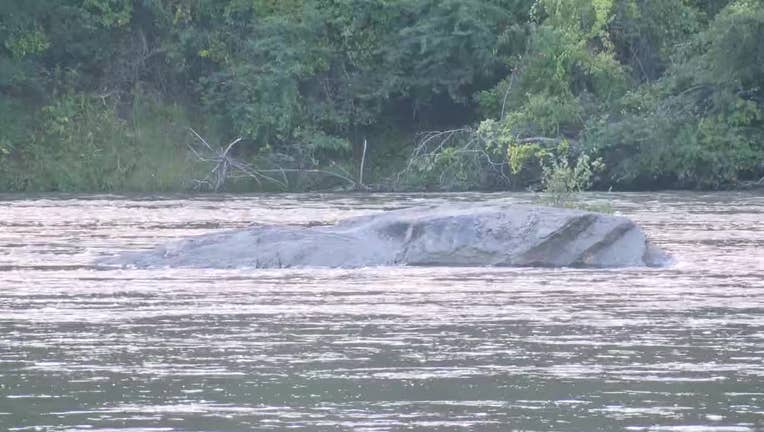Chattahoochee Water War: Alabama, Georgia reach historic agreement on river flow

ATLANTA - A major breakthrough in a decades-long dispute over water rights between Alabama and Georgia.
Georgia Gov. Brian Kemp and Alabama Gov. Kay Ivey announced on Tuesday they have reached an agreement with the U.S. Army Corps of Engineers over sufficient minimum water flows during times of drought.
The agreement sets standards for the U.S. Army Corps of Engineers to operate its dams and reservoirs to achieve minimum water-flow objectives at Columbus and across state lines in Columbia, both along the Chattahoochee River. It also sets a minimum level for Lake Seminole, located in southwest Georgia, approximately twenty miles southwest of Bainbridge.
"This agreement is a win-win for our states, with neither side sacrificing what is important to them," said Kemp. "The Chattahoochee River is the lifeblood of southwest Georgia, and this proposal would give citizens and businesses certainty about the flow of water they need for business and leisure alike. Just as significant, adoption of this proposal would end the current issues related to water supply for metro Atlanta at Lake Lanier, which is crucial to the future of our state."
"I agree with Gov. Kemp that this is a win-win solution for both Alabama and Georgia," Ivey said. "Alabama and Georgia have a lot in common. But we have spent a lot of time — and a lot of money on attorney fees — fighting in court over water. This proposal is a big deal for Alabama as the Corps has never before set minimum water-flow objectives in the parts of the Chattahoochee that affect us. It would provide Alabama with long-term assurances that, in times of drought, our citizens will be protected, and our stakeholders will know how much water is coming their way."
The proposal is expected to resolve a dispute raised by Alabama back in the 1990s which alleges the U.S. Army Corp of Engineers favored the metro Atlanta area for water from the Chattahoochee River over those downstream. This specific case was brought in 2017.
The proposal is still subjected to a public-comment period and environmental review that could last several months. If adopted, the current lawsuit would be tossed in a year after the review process.
Both governors expressed hope this would usher in a renewed partnership in water conservation and use.
What is the Chattahoochee Water War?
In the Southeast, a fierce and protracted battle over water resources has unfolded along the banks of the Chattahoochee River. This long-standing conflict, known as the Chattahoochee Water War, has pitted Alabama, Florida, and Georgia against each other in a struggle for access to the precious water that sustains communities, agriculture, and industries across the region.
The Chattahoochee River, originating in the Appalachian Mountains and flowing through the tri-state region, has become a vital source of water for the growing populations and expanding economies of Alabama, Florida, and Georgia. However, as demands for water have increased over the years, tensions have escalated, leading to legal disputes, negotiations, and even Supreme Court involvement.
The root of the conflict lies in the complex system of water rights and allocations that govern the usage of the river's resources. Each state contends that its needs are paramount, leading to a deadlock that has persisted for decades. The situation has been exacerbated by periods of drought and changing weather patterns, which have heightened competition for the limited water supply.
In 1990, the U.S. Army Corps of Engineers implemented a water management plan for the Apalachicola-Chattahoochee-Flint (ACF) River Basin, aiming to balance the needs of the states involved. However, this plan has faced numerous legal challenges, with each state arguing that their citizens and industries are being unfairly affected.
The Supreme Court became involved in 2018, agreeing to hear Florida's case against Georgia. Florida claimed that Georgia's excessive water consumption upstream was causing ecological and economic damage downstream in the Apalachicola Bay. The Court's decision, however, fell short of providing a comprehensive resolution, leaving the door open for further legal battles.
The Chattahoochee Water War continues to simmer, but Tuesday’s developments could go a long way to finally resolving the conflict.

